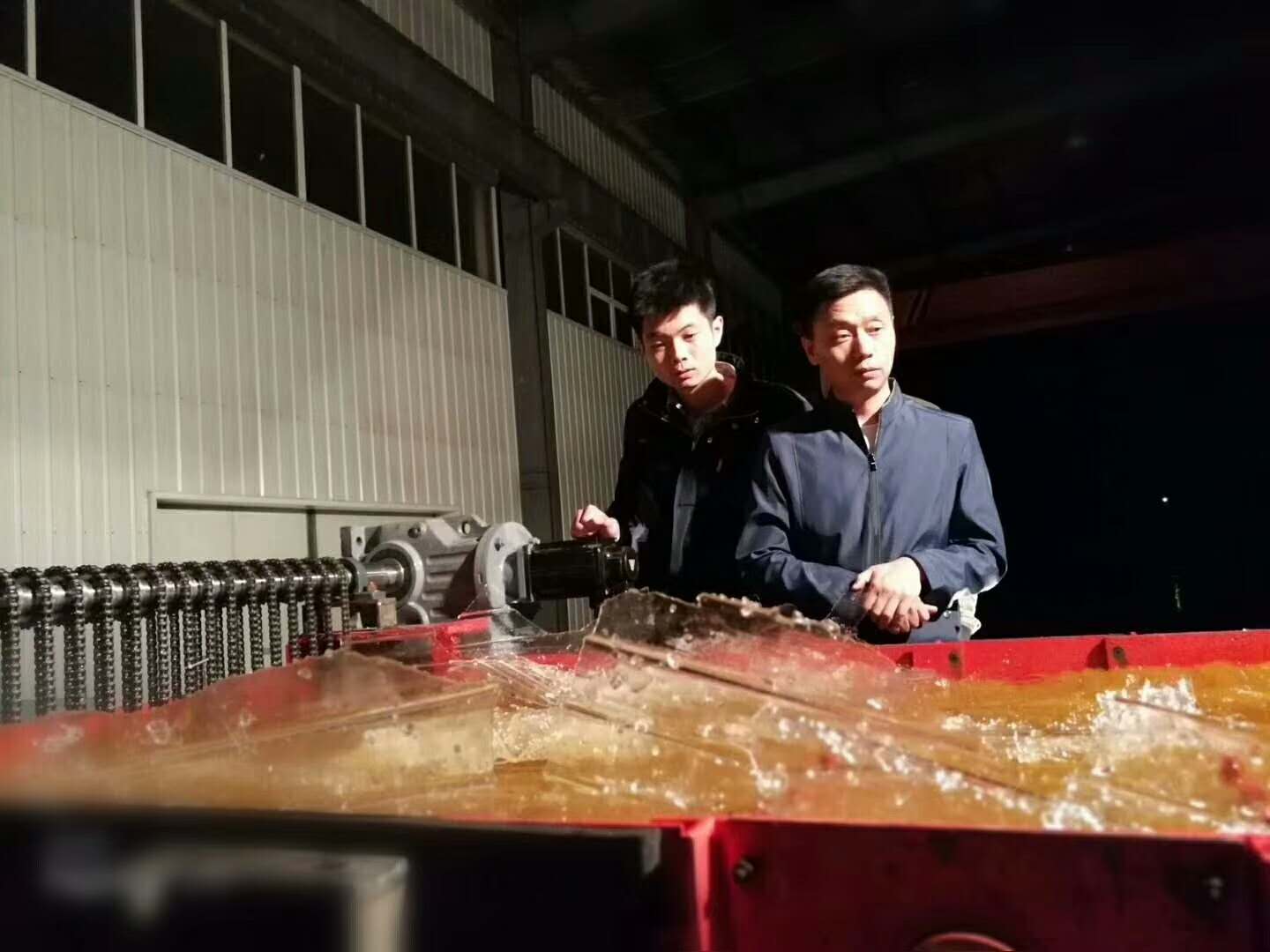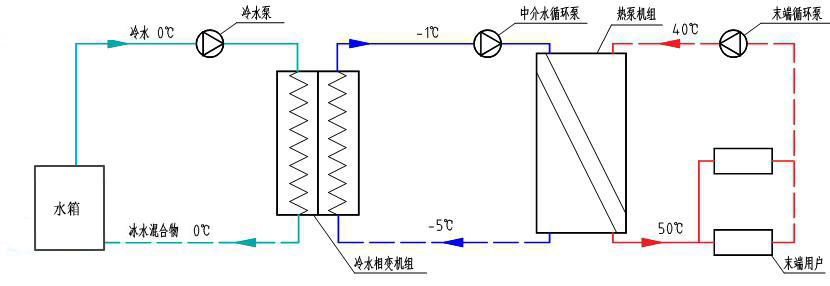Technology upgrading

Recently, the second generation cold water phase-change energy pump technology has achieved a major breakthrough. After operation test, the system is efficient and energy saving, and has the ability of large-scale popularization and application.
System principle


The cold water phase change energy heat pump heating and cooling system is composed of three sub circulation systems, namely cold water circulation, intermediate circulation and terminal circulation.
1. Cold water phase change cycle: cold water enters the cold water phase change unit at 0℃, releases phase change energy, becomes 0℃ of ice & water mixture, and then returns through the pipeline;
2. Intermediate water cycle: -5℃ intermediate water absorbs phase change energy to rise to -1℃, enters the heat pump to release temperature, and then enters the cold water unit again to complete closed loop transformation;
3. Terminal water cycle: 40℃ terminal water enters the heat pump unit, absorbs heat to rise to 50 degrees, and then enter the user building through the pipeline.
System advantage

Advantage 1: the energy is huge. When the water at 0℃ is turned to ice at 0℃, the latent heat energy released is equivalent to the sensible heat energy released by the water temperature at 80 degrees Celsius.
Advantage 2: water consumption is very small. The water consumption of the phase-change energy pump system can be reduced to about 5% of the original water consumption. Conversely, under the same water condition, the heating area of the phase-change energy pump system can be expanded by more than 20 times.
Advantage 3: widely used. It can be applied to many kinds of water sources. It can be adapted to local conditions and flexibly, and the project implementation is not restricted by heat source distribution.
Advantage 4: winter and summer dual-use. It can replace ice storage system in summer, and has low investment and low operating cost.
Advantage 5: energy saving and emission reduction. The primary energy utilization rate is as high as 120%. Taking Qingdao area as an example, compared with municipal heating, the amount of coal saved per 10000 square meters is 100~150 tons.
It is one of the effective ways to reduce the energy consumption of buildings and achieve energy saving and emission reduction by developing the huge phase transition energy released in the process of cold water freezing, which can almost solve the heating problem of all buildings.



 Company News
Company News

 Industry News
Industry News

 Media Reports
Media Reports
